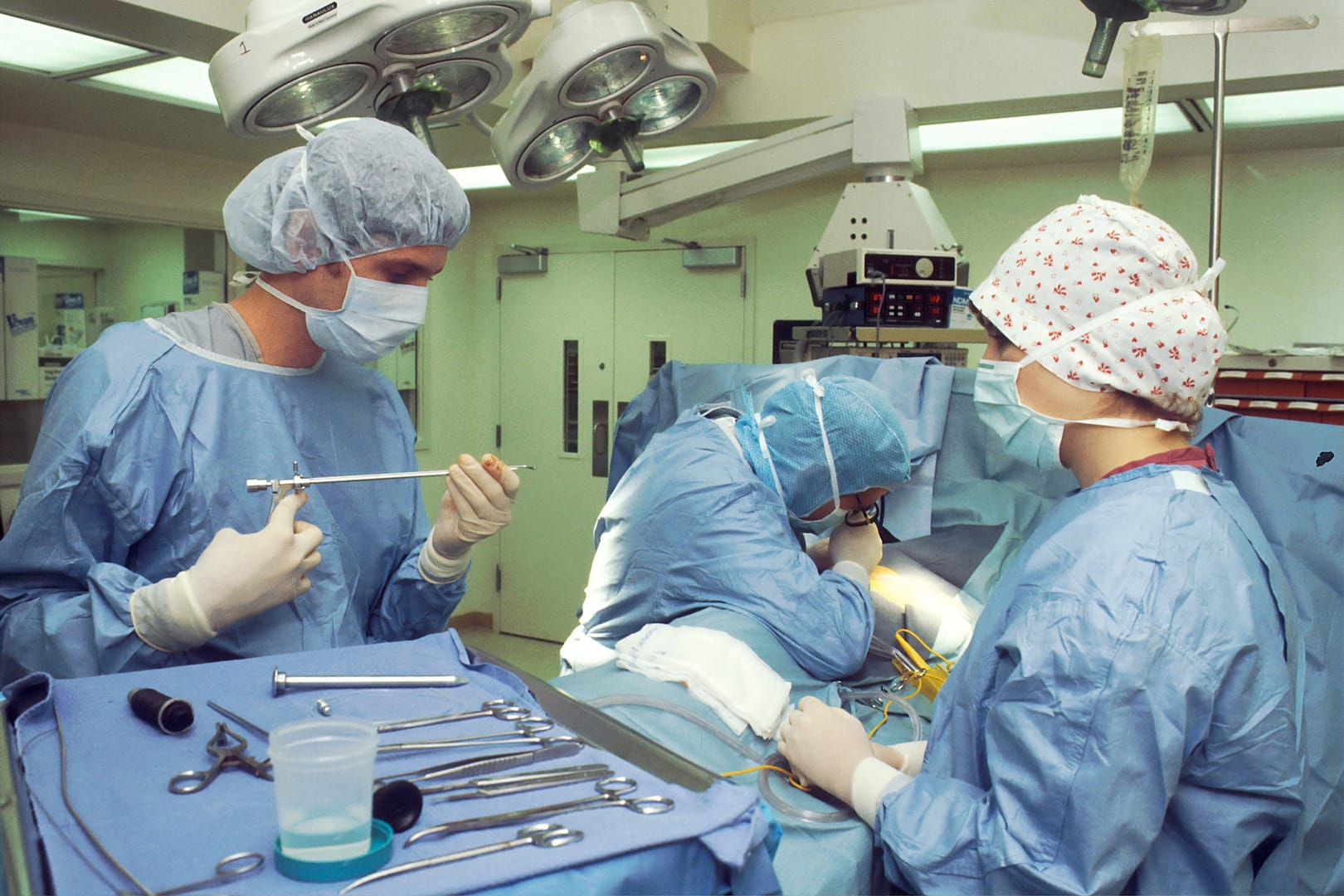When we or our loved ones seek medical care, we place immense trust in the hands of healthcare professionals. Whether it’s a routine check-up or a complex surgical procedure, we rely on doctors, nurses, and other medical staff to provide us with the highest standard of care. However, there are instances when things go wrong, and the question arises: “What constitutes medical malpractice?” In the United Kingdom, the legal framework for medical malpractice is well-defined, and understanding the criteria for medical negligence can help individuals determine if they have a valid case.
The Basics of Medical Malpractice
Medical malpractice, also known as medical negligence, is a legal concept that arises when a healthcare professional fails to meet the expected standard of care, resulting in harm to the patient. It’s important to note that not every medical error or unfavourable outcome constitutes medical malpractice. To establish a case of medical negligence, several elements must be present:
Duty of Care
The first critical element is the existence of a “duty of care.” This means that the healthcare provider owed the patient a legal obligation to provide competent and appropriate medical treatment. In the UK, healthcare professionals, including doctors, nurses, and other medical staff, have a legal duty to their patients.
Breach of Duty
The next element to consider is a “breach of duty.” A breach occurs when the healthcare provider fails to meet the standard of care expected of a reasonable medical professional in a similar situation. In other words, the healthcare provider’s actions or inactions must deviate from what would be considered acceptable by their peers.
Causation
Causation is a crucial factor in establishing medical malpractice. It must be demonstrated that the breach of duty directly led to harm or injury to the patient. If the patient’s condition worsened as a direct result of the healthcare provider’s actions or negligence, this is considered a crucial link.
Harm or Injury
Lastly, to make a successful claim for medical negligence, the patient must have suffered harm or injury as a direct result of the healthcare provider’s breach of duty. It’s not enough to show that a mistake was made; there must be clear evidence of physical or psychological damage.
Identifying Medical Malpractice
To help individuals understand what constitutes medical malpractice in the UK, it’s essential to consider a range of scenarios and situations where medical negligence may occur. While it is crucial to remember that every case is unique, here are some common examples that shed light on the subject:
Misdiagnosis or Delayed Diagnosis
One prevalent form of medical malpractice is misdiagnosis or delayed diagnosis. In these cases, a patient’s medical condition is inaccurately identified or diagnosed later than it should have been. For instance, if a doctor fails to diagnose cancer in its early stages, the patient’s prognosis can worsen significantly.
Surgical Errors
Surgical errors can have devastating consequences. These errors may include operating on the wrong body part, leaving surgical instruments inside the patient’s body, or performing unnecessary surgeries. A well-known example is the case of a patient undergoing knee surgery, only to discover that the surgeon operated on the wrong knee.
Medication Errors
Mistakes in prescribing, administering, or dispensing medication can also result in medical malpractice. Patients may be given the wrong medication or an incorrect dosage, leading to serious health issues. These errors may occur in hospitals, clinics, or even when receiving medication from a pharmacy.
Inadequate Informed Consent
Before undergoing medical procedures, patients have the right to be informed about the potential risks and benefits. Inadequate informed consent occurs when a healthcare provider fails to fully explain the procedure and its associated risks. This lack of information can result in patients agreeing to treatments they wouldn’t have otherwise consented to.
Birth Injuries
Medical negligence during childbirth can lead to birth injuries for both the baby and the mother. For example, if a healthcare provider fails to perform a timely caesarean section when necessary, it can result in severe birth-related injuries. In such cases, medical professionals are expected to exercise a high standard of care to ensure the safety of both the mother and the child.
Negligent Aftercare
Medical malpractice is not limited to the treatment phase alone; it can also occur during the post-treatment phase. Negligent aftercare may include improper wound care, failure to monitor patients, or inadequate follow-up care after surgery. Inadequate aftercare can lead to complications and prolonged recovery periods.
Legal Regulations in the UK
In the United Kingdom, medical malpractice cases are governed by the legal system. The UK has stringent regulations and guidelines in place to address medical negligence and ensure that patients receive the appropriate standard of care. The National Health Service (NHS) is a key institution in the UK’s healthcare system and is committed to providing high-quality care.
Patients in the UK have the right to make complaints and seek compensation for medical negligence. The NHS Complaints Procedure allows individuals to address their concerns and seek resolutions for cases of substandard care.
Additionally, the General Medical Council (GMC) and the Nursing and Midwifery Council (NMC) are regulatory bodies responsible for overseeing the conduct and professional standards of medical practitioners. These councils ensure that healthcare professionals adhere to the expected standards of care and ethics. Breaches in professional conduct can result in disciplinary actions and, in severe cases, the removal of a healthcare provider’s licence to practise.
Making a Clinical Negligence Claim with National Claims
At National Claims, we understand the challenges and distress that individuals may face when dealing with medical negligence. Our mission is to provide expert guidance, support, and legal assistance to those who have been affected by substandard healthcare. Here’s how National Claims can assist you in the claims process:
Expert Legal Team
National Claims has a team of dedicated and experienced solicitors specialising in medical negligence cases. When you contact us, you will be connected with a legal expert who will assess the details of your situation and provide personalised guidance.
Free Initial Consultation
We offer a free initial consultation to discuss your case and evaluate its viability. During this consultation, we will gather essential information, answer your questions, and provide a preliminary assessment of your claim.
Evidence Collection
Our team will work with you to gather all necessary evidence, including medical records, test results, and documentation related to your treatment. We understand the importance of building a strong case and will leave no stone unturned.
Expert Assessment
We have access to a network of medical experts who can assess the standard of care you should have received and compare it to the care you actually received. Their professional opinions play a crucial role in strengthening your case.

Conclusion
Medical malpractice, or clinical negligence, is a serious concern that can have life-altering consequences for patients. Understanding the elements that constitute medical malpractice and knowing your rights as a patient is essential. In the UK, a robust legal framework and regulatory bodies are in place to ensure that individuals receive the expected standard of care and have avenues for recourse when things go wrong.
If you believe you have been a victim of medical negligence, it’s important to take the necessary steps to protect your rights. Seeking the guidance of a qualified solicitor, such as those at National Claims, can be a crucial first step in seeking justice and compensation.
Remember that not all medical errors amount to medical malpractice, and establishing a case for clinical negligence can be complex. By following the legal process, gathering evidence, and consulting experts, you can seek the compensation you deserve and hold those responsible for negligence accountable for their actions.
National Claims is here to support you throughout your journey to justice. We offer expertise, a compassionate approach, and a commitment to helping you obtain the maximum compensation for the harm or injury you’ve experienced due to medical negligence. Don’t hesitate to reach out for a free initial consultation to discuss your case and explore your options. Your well-being and your rights matter, and we are here to help you every step of the way.
Contact us and start your claim today with the help of one of our claims specialists.
Click below to see why we are one of the most trusted claims management companies in the UK.

We’re proud of our excellent customer reviews
We thrive on delivering exceptional service and ensuring our clients’ satisfaction. Don’t just take our word for it. Check out some of our independent reviews to see what our clients have to say.
Excellent

This firm is excellent, they sorted out my car pay out and injury claim very fast, they always communicate with you all the time.

My accident case was dealt with confidence and with great result of the outcome, especially James kept me informed all the time.

I was very impressed at the way my inquiry was treated. I was listened to attentively and everything I needed to know was explained to me.






